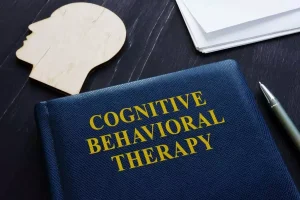
If there are any concerns about content we have published, please reach out to us at It would be nice if the above outcomes were universal—but they aren’t (of course). Making amends won’t necessarily play out like the ending of a Hallmark movie. Sometimes, the outcome can be uglier and downright disappointing. They may refuse to meet at all or refuse to listen to what you have to say. Sometimes it can be hard to know what to say when preparing to make amends.
- If there are any concerns about content we have published, please reach out to us at
- While I did these things in active addiction, that does not take away from how wrong they were, and the pain and sense of betrayal you must have felt as a result of my actions.
- The 9th step can be the most fearsome of the steps of A.A.
- Yes, we partake in the process to “clean up our side of the street,” but we do not make amends to clear our conscience or undo our feelings of guilt.
- If you’re writing a letter, whether sending or sharing it in person, spend some time reflecting on and sharing the actions you’re taking to redress the wrong(s) done.
Direct Amends
For example, if we hurt people with our lying and we cannot make amends without further injuring them, we would make living amends by making a decision to behave and communicate with complete honesty. For example, we might intend to go to a friend’s birthday party, but in actuality, we fail to show up for the event. While we might apologize later for missing the party, our apology consists of words rather than actions or changed behavior. And those words ring hollow when we repeatedly break our promises. So, to truly make amends, we have to offer more than words. This is probably what you have in mind when you think of making amends.
Step 9 Amends Worksheet: AA (Alcoholics Anonymous)

Remembering how I stole from you makes me sad and fills me with shame. While I did these things in active addiction, that does not take away from how wrong they were, and the pain and sense of betrayal you must have felt as a result of my actions. Living amends is a third option for those in the ninth step of recovery. With this option, the individual living amends in recovery takes steps to improve their relationships and demonstrate their lifestyle change. They may visit family members and friends more often, set aside time to spend with their partner or donate their time to a worthy cause. Say, for example, you’re preparing to make amends to a former coworker, whom you once stole from to pay for drugs.
- However, it is equally designed for the people in your life now and in the future.
- This reminds you that the spirit of the eighth Step goes beyond forgiveness and includes compassion, honesty, humility and other qualities built up in previous steps.
- Reflecting on previous attempts at making amends can provide valuable insights and learning opportunities for more effective amends in the future.
- Any thought that springs to mind can be journaled here for reference.
Step 5 – The Importance of Admitting our Wrongs
Acknowledging the damage caused, though challenging, is a critical step for our recovery. Generally speaking, people work through the Steps of Alcohol Anonymous with an addiction treatment counselor and/or sponsor. You can also turn to AA’s Big Book and Twelve Steps and Twelve Traditions (the 12 & 12) for guidance specific to Step 8. For these reasons, we do not initiate the process of amends without significant input from our sponsors.
So be sure to talk with your sponsor and/or support group about your plan in the event that you need support. Full disclosure, however, may harm the one with whom you are making amends, or quite often, other people. It won’t make you feel any better to increase the burden of another.

Committing to Changed Behavior

If we are painstaking about this phase of our development we will be amazed before we are halfway through. We will not regret the past nor wish to shut the door on it. We will comprehend the word Serenity and we will know peace.
We are seeking accountability for our own actions and holding ourselves to the standards of our own values and our 12 Step program. An example would be telling someone how sorry you are that you stole from them and actually giving back what you took. The other thing to consider when planning is what to do if things become ugly. Let’s say that at the same time as our imaginary member of the AA stole the $110.00 from Bill, Bill had misplaced $40.00 and believes that $150.00 had been stolen. In the discussion, Bill states that and says the penitent is lying anyway.
What’s the Difference between Making Amends and Offering an Apology?
- Once you enter into sobriety, there isn’t a set timeline for working Steps 8 and 9, so you might want to ask your sponsor and recovery support network for their insights about whether you’re ready.
- The 8th Step leads you to the knowledge that there are things you can and can’t change by identifying who you’ve harmed and how you’ve harmed them and then making a list.
- It’s definitely central to respect the desires of individuals who opt out and to concentrate on your recovery, rather than on achieving forgiveness or easing personal guilt.
- Our team works closely with you throughout this process to help you achieve your goals in recovery.
- The FHE Health team is committed to providing accurate information that adheres to the highest standards of writing.
- To express regret genuinely includes acknowledging the emotional impact of one’s actions on others.







